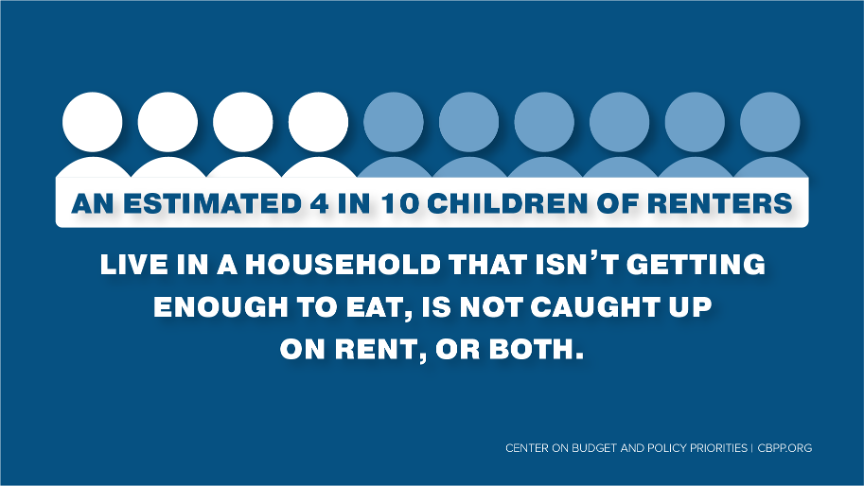Struggling Families and Economy Need Robust, Bipartisan COVID Relief Agreement
The only way to adequately meet the needs of a reeling economy, struggling families, and cash-strapped states and localities is for President Trump and Congress to come to agreement on a robust, bipartisan economic relief package.
Tens of Millions Are Facing Hardship
- Tens of millions of people have lost their jobs, and millions report that their households did not get enough to eat, are behind on their rent or mortgage, or both.
- Some 85 million adults — 36 percent — reported it was somewhat or very difficult for their household to cover usual expenses such as food, rent or mortgage, car payments, medical expenses, or student loans in the past seven days, according to Census data collected November 25–December 7.
- Some 27 million adults reported that their household didn’t get enough to eat in the last seven days.
- An estimated 14.3 million adult renters (1 in 5) reported that they were not caught up on rent.
- Nearly 4 in 10 children living in rental housing live in a household that either isn’t getting enough to eat or is not caught up on rent, according to an analysis of more detailed data for November 11–23.
- An estimated 44 percent of all children live in a household that reported it was somewhat or very difficult to cover usual expenses in the past seven days, according to data collected November 11–23.

The impacts of the pandemic and economic fallout have been widespread, but they are particularly prevalent among Black, Latino, Indigenous, and immigrant households.
- Black and Latino adults were more than twice as likely as white adults to report that their household did not get enough to eat, with rates of 22 percent and 21 percent, respectively, compared to 9 percent for white adults. The rate was 19 percent for American Indian, Alaska Native, Native Hawaiian, Pacific Islander, and multiracial adults taken together.
- Renters of color were more likely to report that their household was not caught up on rent, with Black renters facing the greatest hardship: 29 percent of Black renters, 26 percent of Latino renters, and 21 percent of Asian renters said they were not caught up on rent, compared to 14 percent of white renters. The rate was 18 percent for American Indian, Alaska Native, Native Hawaiian, Pacific Islander, and multiracial adults taken together.
- Half of Black adults (52 percent) and Latino adults (50 percent) reported difficulty paying for usual household expenses, compared to 29 percent of white adults. Among American Indian, Alaska Native, Native Hawaiian, Pacific Islander, and multiracial adults taken together, the rate was 45 percent.
These disproportionate impacts reflect harsh, longstanding inequities — often stemming from structural racism — in education, employment, housing, and health care that the current crisis is exacerbating. Without robust measures to provide relief and address the growing hardship, these disparities will widen.
States Face Sizeable Budget Shortfalls
Policymakers must provide significant fiscal relief to states or the states will continue laying off or furloughing teachers and health care workers and cutting education, health care, and other vital services to meet their balanced-budget requirements.
Budget shortfalls have already driven harmful cuts to education and other services as well as layoffs and furloughs of large numbers of state and local workers. More cuts are coming without additional aid.
Robust, Bipartisan Package Needed to Address Urgent Priorities
Given the high unemployment and deep hardship that millions of people are enduring, and the enormous fiscal challenges that states and localities face, policymakers must enact a robust economic relief package that includes:
- Funding for testing, contract tracing, and other critical measures to combat the spread of COVID-19.
- Food assistance for millions who aren’t getting enough to eat, including students missing out school breakfast and lunch.
- Adequate levels of unemployment benefits and additional weeks of benefits for people who have lost their jobs.
- Help paying rent for the millions who are falling behind — often accumulating hundreds or thousands of dollars in back rent — and risk housing instability or eviction and illness in spite of the Centers for Disease Control and Prevention’s temporary eviction moratorium.
- Funding for schools to reopen safely or operate effectively until they can.
- Fiscal relief for states, including additional Medicaid funding, to avoid more layoffs and cuts in education, health care, and other critical state services.